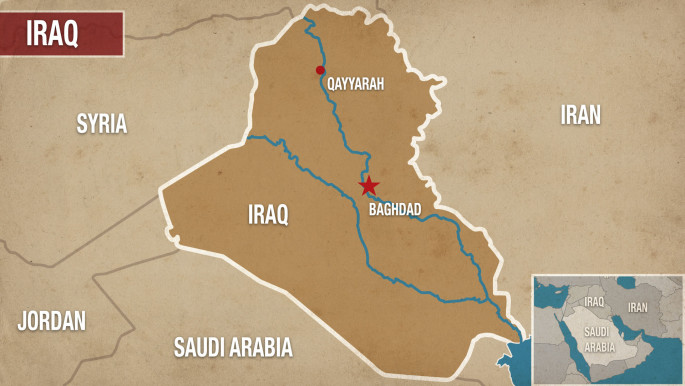Iraqi oil fields remain ablaze after Islamic State retreat
Iraqi forces continue the battle to extinguish oil wells set ablaze by the Islamic State [IS] in the Qayyarah region of central Iraq, despite the retreat of the militant group from the area late last month.
The continued burning of crude oil has sent dark clouds into the sky in Qayyarah, whilst emergency response teams have been forced to erect dirt walls and trenches to prevent oil seeping into residential areas.
The scenes witnessed in Qayyarah have drawn comparisons with Saddam Hussein's tactic of burning Kuwait's oil fields as the Iraqi army retreated during the 1991 Gulf War.
| Read also: Islamic State: Scorching Iraq's earth |
Although Iraqi authorities announced last week that fires at four different wells had been put out in Qayyarahh, Iraqi Oil Ministry spokesman Asim Jihad said on Monday that the task of extinguishing the blazes remained incomplete.
Speaking to Reuters, Jihad noted that IS had booby-trapped wells in Qayyarahh with explosives making the task of extinguishing the raging fires all the more difficult.
"The firefighting consisted of removing explosives from these wells, putting out the fires and preventing crude oil from leaking into the river to prevent pollution," said Jihad.
 |
|
The ministry spokesman added that whilst fires continued to blaze at three wells that remained outside the control of Iraqi security forces, they would be extinguished hastily upon their recapture.
Qayyarah, and the nearby Najma oil fields previously produced up to 30,000 barrels of heavy crude oil before being overrun by IS.
Although most of the Qayyarah area is now under government control production is not expected to resume until security forces retake Mosul, IS’ de facto capital in Iraq, located around 50 km north of the area.
Agencies contributed to this report





 Follow the Middle East's top stories in English at The New Arab on Google News
Follow the Middle East's top stories in English at The New Arab on Google News
![Israeli forces ordered bombed Gaza's Jabalia, ordering residents to leave [Getty]](/sites/default/files/styles/image_330x185/public/2176418030.jpeg?h=a5f2f23a&itok=_YGZaP1z)

